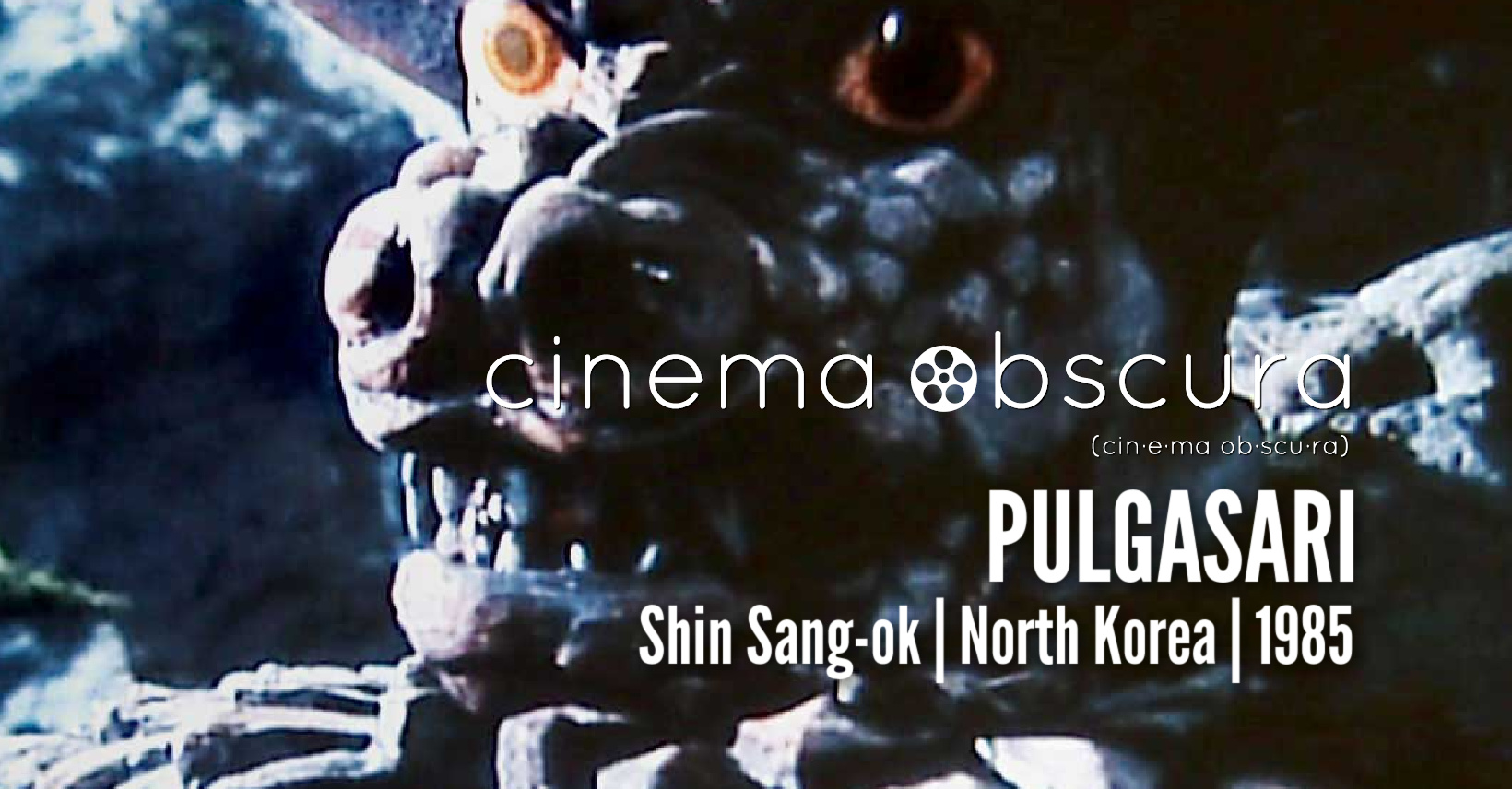Cinema Obscura | Pulgasari | 1985
Cinema Obscura is a periodic feature at From the Front Row, highlighting little-known films that I believe need a second look. The mission of Cinema Obscura is to bring attention to hidden gems and forgotten masterpieces from around the world that readers may not otherwise have had a chance to discover.
Often referred to as North Korea's answer to Godzilla, Pulgasari actually reminds me more of The Golem (1920), with its tale of an oppressed people who conjure a monster to protect them from their oppressors and seek vengeance for their fallen comrades.
The monster, in this case, is Pulgasari, a creature made from a ball of rice and a dying farmer's last wish that his people be liberated in his name. The creature born from that rice ball becomes a metal-devouring monster that fights alongside a band of farmers and peasant rebels who seek to liberate their people from tyranny. It's a film in which the revolutionary spirit is alive and well, but it's also surprisingly nuanced, lacking the blatant didacticism one might expect from political cinema. Pulgasari feeds off of iron, and by the time the battle is won, the monster's insatiable hunger threatens to ruin those it once fought to protect. No longer satisfied by devouring swords and other weapons of war, the farmers realize they must also sacrifice their tools to satisfy Pulgasari, facing starvation and ruin in order to maintain their military strength.One could read this as an intentional critique of Kim Jong-il by director Shin Sang-ok, a South Korean filmmaker who was reportedly kidnapped and forced to make this film by the North Korean leader as part of a plan to bolster the country's film industry. One could also read it as an essentially Stalinist critique of the idea of permanent revolution championed by Vladimir Lenin and Leon Trotsky, which is certainly more in line with North Korea's isolationist Juche ideology. Or one could read it as a more straightforward warning about the devastating effects of war. Regardless of its political intentions, Pulgasari is a fascinating curio; difficult to take seriously as a genuine piece of leftist agitprop, perhaps, yet designed to be palatable to audiences outside of North Korea as a would-be showcase for the country's nascent film industry. It was a release that never came to pass, but it is nevertheless a well-made and often thrilling answer to Japan's kaiju films, using its monster as a double-edged sword in a feudal struggle against exploitation.
The creature itself looks great, superior even to some of Japan's kaiju suits of the Showa era. It is both fearsome and adorable, his antics as a young, growing monster recalling Godzilla's bumbling son, Minilla, and providing some moments of levity in an otherwise serious-minded film. While it never received the international attention Kim hoped for that it probably deserves, Pulgasari is readily available on YouTube for those who are feeling adventurous and looking to discover something new.





Comments